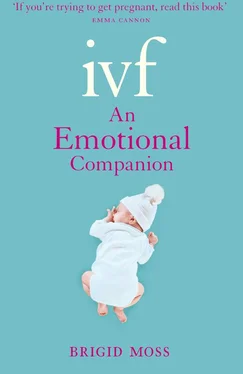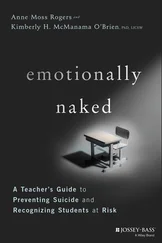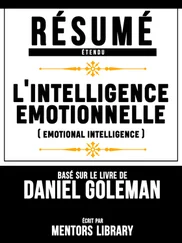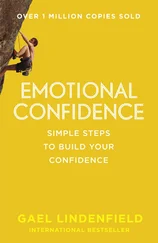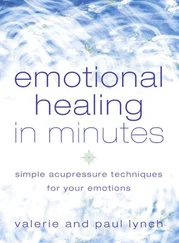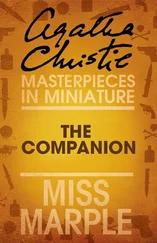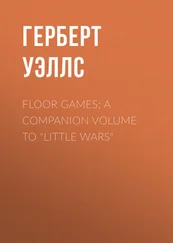ivf
An
Emotional
Companion
BRIGID MOSS

Contents
Cover
Title Page ivf An Emotional Companion BRIGID MOSS
Introduction
Why I had IVF
Polycystic ovaries stopped me ovulating
My partner had no sperm
I had premature ovarian failure
I couldn’t give my son a sibling
Cancer affected my fertility
I’m a single mother by choice
I’m in a same-sex couple
Making the right choices
How I found the right clinic
Having IVF at 40+
I was only allowed one embryo transferred
Ovarian hyperstimulation could have killed me
I had reproductive immunology
Why I used an egg donor
My experience of surrogacy
I got pregnant naturally after IVF
Surviving IVF
My twin IVF pregnancy
IVF could have ended my relationship
Therapy got me through IVF
My friends and family got me through
My experience of miscarriage
Why I finally stopped IVF
I moved on to a child-free life
Why I adopted after IVF
Afterword
Further reading
References
Index
Acknowledgments
Copyright
About the Publisher
Introduction
• • • • • • • • • • • • •
Idon’t know how long you’ve been trying for a baby, which fertility investigations or treatments you’ve had or what your chances are now of getting pregnant. You could just be thinking about having IVF, you might be a veteran IVF-er who’s had multiple cycles, or you may be about to start out on your first cycle. Wherever you are on your IVF journey, this book is for you.
If I think back, I can still remember the feelings of inadequacy, shame and loneliness that I had when I couldn’t get pregnant. That was my motivation for writing this book, a collection of stories from 22 amazing women who are sharing them because, like me, they remember how it feels to be among the one in six couples who experience infertility. Each one of them volunteered to tell her story because she wanted to let you and others know that IVF can be hard, but that you can get through it.
When I was first told I’d need IVF, almost six years ago, aged 35, I couldn’t talk to anyone about my fertility problems. Writing this book — admitting my infertility to everyone — and speaking to the women whose stories are told in these pages has been liberating for me. As one woman said to me, ‘IVF and infertility need to be brought out into the open. Nobody should be ashamed any more.’
But back then, I didn’t want anyone to feel sorry for me or pity me or gossip about me. I didn’t want friends to think they couldn’t tell me when they got pregnant easily. And I didn’t want my mum to be sad for me or worry about me. Adam, my husband, was a great support because, as a lifelong optimist, he always believed we’d have our family in the end.
I loathed the hours spent waiting for fertility appointments in gloomy NHS corridors; and the appointments themselves were gruelling and made me feel very vulnerable. If you’ve ever had an HSG (an hysterosalpingogram, which examines your womb and Fallopian tubes using a dye that shows up when your abdomen is X-rayed), you’ll know why I walked out of the examination room when I saw the huge machine I was being asked to lie on, naked from the waist down. Most of the doctors were good at explaining things, and kind, but I still felt like crying at every appointment, just because I felt so sad and powerless. There were times when I couldn’t face yet another internal examination (one of the women in the book made me laugh when she said, ‘I automatically take off my knickers now as soon as I get into any doctor’s examination room’).
Hormone tests and cycle monitoring showed my cycle was regular and I was ovulating, but the HSG showed my tubes might be blocked. Two years after I first went to the GP, I was booked in for a laparoscopy (a keyhole operation: a camera is put inside your abdomen via an incision under your tummy button). The surgeon discovered my tubes were blocked, and that I had adhesions, bands of tissue stuck to my internal organs, possibly due to a pelvic inflammatory disease that I’d had a few years earlier. Your tubes are so tiny and delicate, they can easily be damaged by infection and by adhesions.
At this point, I was finding it hard to concentrate on anything but my fertility. I could cope pretty well with seeing pregnant friends (of course, this was the exact time lots of friends chose to procreate), but I was beginning to feel bitter towards innocent pregnant strangers in the street. Infertility brought out the nastiest part of me, and altered my perception of the world, so that having a baby became the only thing that counted. I spent hours obsessing over the next test, the next result, preparing for the next treatment, wondering what might make it work or even if I’d magically get pregnant naturally.
The months between NHS appointments dragged on and on. Six months after the first laparoscopy I had another one, this time to clear away the adhesions and attempt to free up my tubes. It didn’t work. Another six months later, and I saw another consultant. He looked at my notes, pronounced me a perfect candidate for IVF and referred me on to the NHS IVF waiting list.
I was nervous, as IVF sounded so medical and invasive, but frankly, after three years of blood tests, scans, internals, laparoscopies and waiting, I was relieved to be getting to that next stage. And what was cheering was that although IVF is now used for a whole spectrum of fertility problems — polycystic ovaries, failure to ovulate, endometriosis and malefactor infertility — it was actually invented to bypass malfunctioning tubes like mine.
As the NHS waiting list for IVF was a year in our area at the time, and I was by then 35, we decided we’d better get on with having IVF privately. My mum kindly gave us some money towards it, and we scraped together the rest. I went to see fertility expert Zita West, who talked me through the pros and cons of the many London clinics.
Another six months later, I was at my first appointment at the ARGC — the Assisted Reproduction & Gynaecology Centre in London. But just when I was ready to start my first IVF cycle, a doctor there scanned me and told me that my tubes were full of fluid due to having been blocked. He said that this could stop the IVF working, as the fluid can go into the uterus and prevent the embryo from implanting. Another gynaecologist agreed and said that my tubes and the adhesions around them were probably causing my awful period pains too. So I had another operation — this time to remove my tubes. It was a very final decison to make, and one I have occasionally regretted since. From that point on, IVF would be my only method of ever getting pregnant.
That’s when I first found the Fertility Friends website, which has a forum for the ARGC, among other clinics. At first I just read other women’s conversations but one day, once I’d finally started IVF, I joined in, asking, ‘What does it mean that my left ovary is showing more follicles [the sacs that contain the eggs] than my right?’ And, a few days later, ‘Does anyone else feel twinges in their ovaries during stimulation? Or get spotting?’ I liked that lots of people replied, and everyone supported each other, cheered each other on and commiserated, really knowing what it felt like when things didn’t work out. My online fertility buddies were there for me during IVF, at all hours, day or night, ready with a quick boost or supportive comment. One woman who was always helpful on the forum was a GP called Alice, who is still a friend today (and whose story is told in Chapter 12).
Читать дальше
